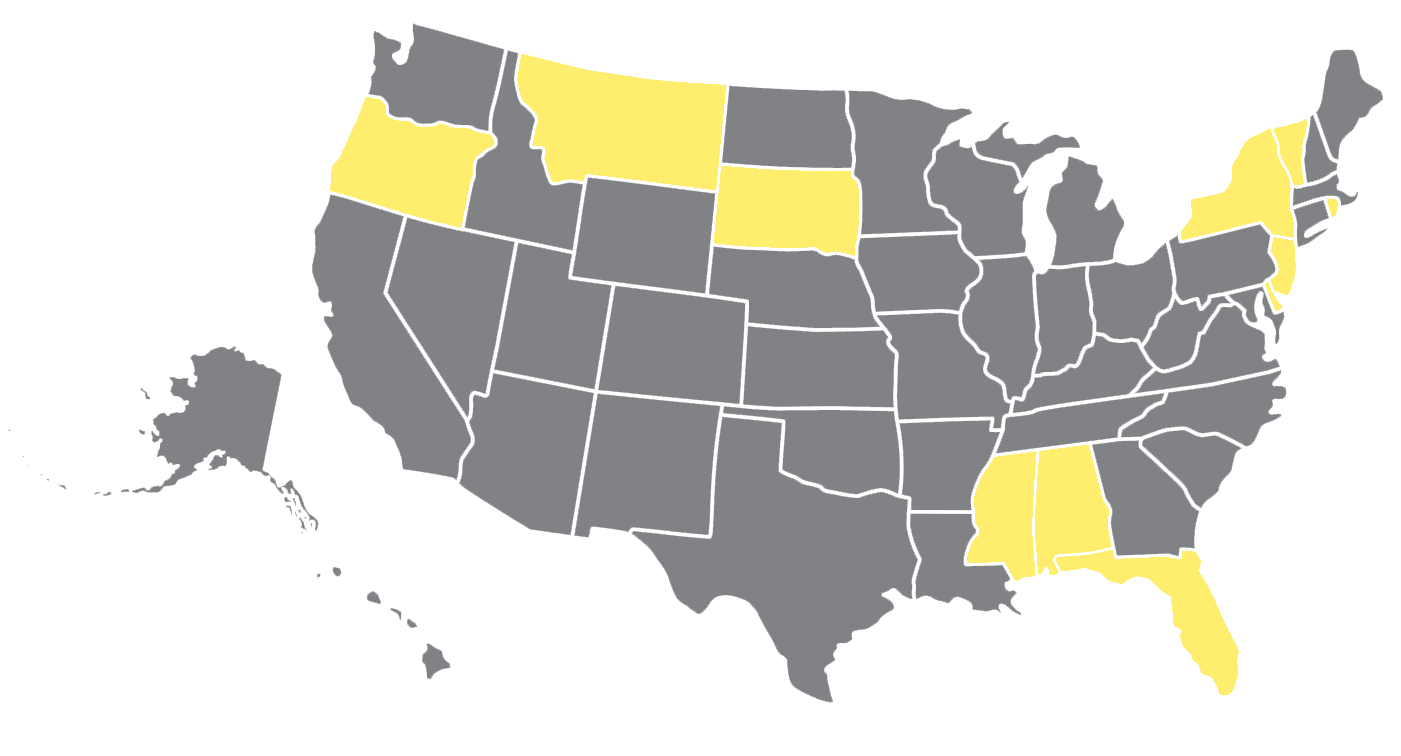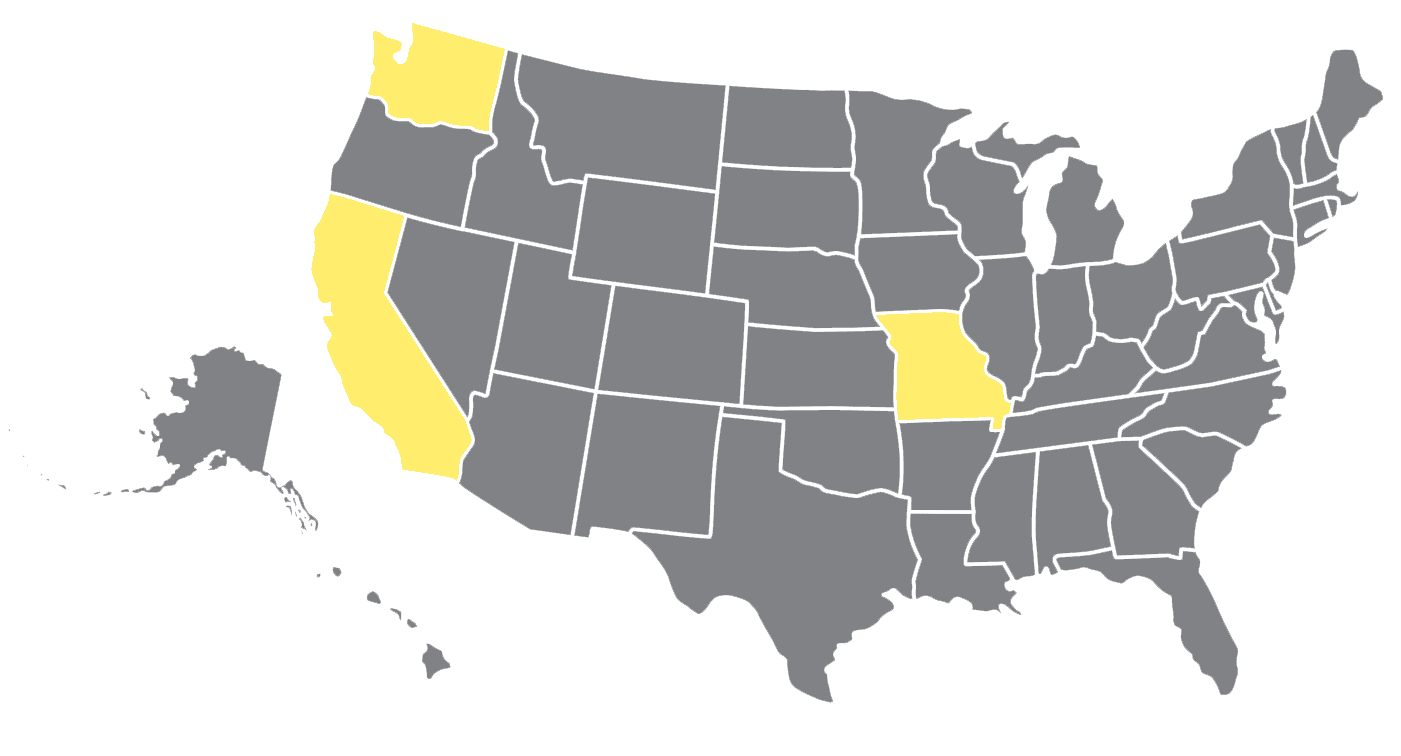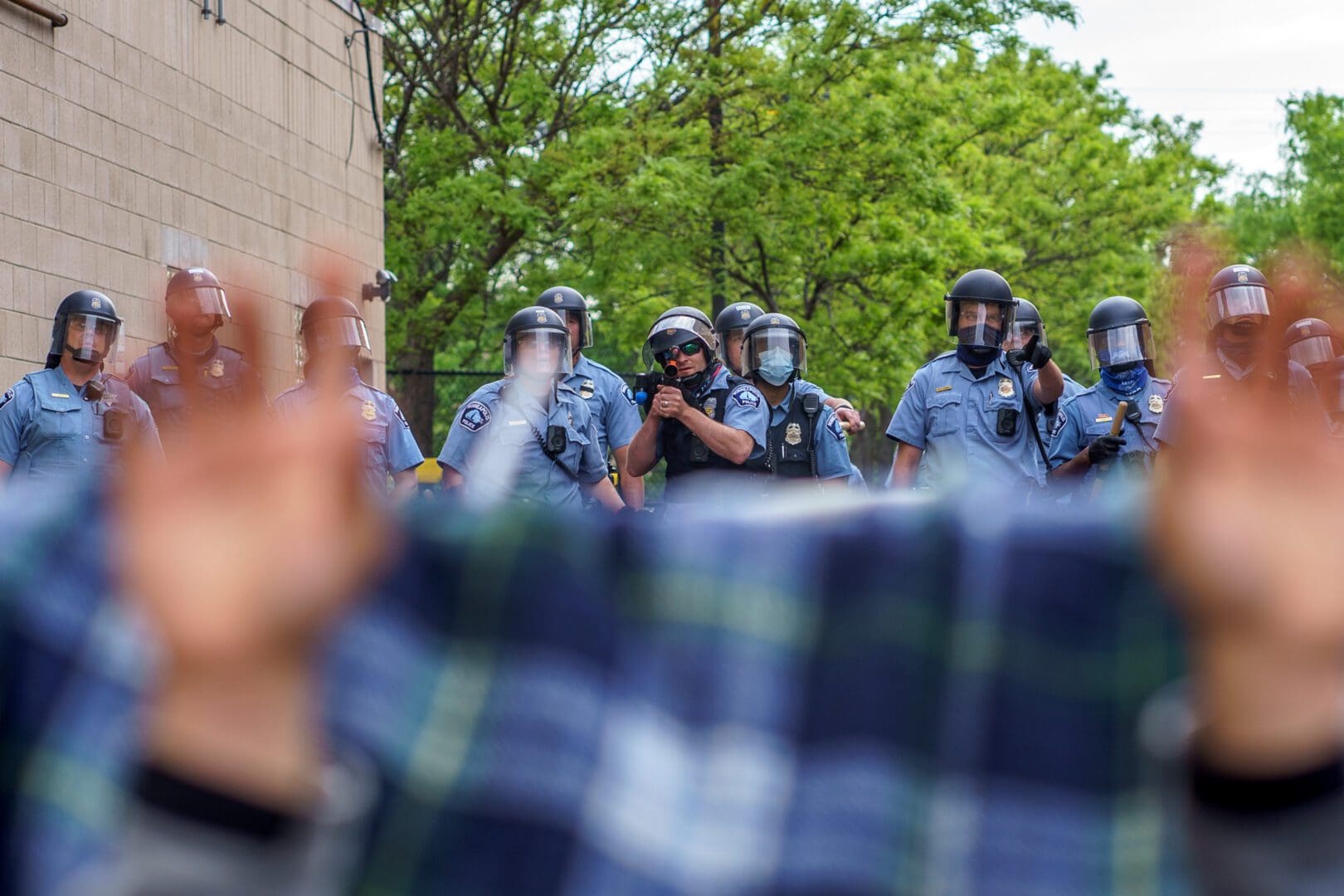MAJORITY LEADER MCCONNELL & THE SENATE MUST PASS THE GEORGE FLOYD JUSTICE IN POLICING ACT
Following the killing of Michael Brown, an 18-year-old Black man, by police officer Darren Wilson in Ferguson, Missouri on August 9, 2014, Amnesty International launched an investigation into laws governing use of lethal force by police in the United States. Our report, “Deadly Force: Police Use of Lethal Force in the United States”, was released in June 2015, just weeks after the death of Freddie Gray from police violence. The findings painted an alarming picture of law enforcement in the United States: the U.S. federal government, along with all 50 states and Washington, D.C., failed to comply with international law and standards on the use of lethal force by law enforcement officers. Under international human rights law, police should only use deadly force as a last resort in order to protect themselves or others from death or serious injury. While countries including Venezuela, Brazil and the Philippines have higher rates of lethal shootings by police than the U.S., among other wealthy nations, the U.S. has much higher rates of fatal shootings by law enforcement.

All 50 states and Washington D.C. still fail to comply with international standards on deadly force.
Five years later, and after millions of people protested the killings of George Floyd, Breonna Taylor, and many other Black people across the country, new research from Amnesty International USA shows very little has changed to prevent deaths at the hands of law enforcement officers. Nine states and Washington D.C. continue to lack state laws on the use of lethal force by law enforcement officers (Maryland; Massachusetts; Michigan; Ohio; South Carolina; Virginia; West Virginia; Wisconsin, Wyoming; and the District of Columbia). Eleven states still have laws that do not comply even with the lower standards set by U.S. constitutional law on the use of lethal force by law enforcement officers (Alabama; Delaware; Florida; Mississippi; Montana; New Jersey; New York; Oregon; Rhode Island; South Dakota; and Vermont).

All 9 states and Washington D.C. continue to lack state laws on the use of lethal force by law enforcement officers.

11 states still have laws that do not comply even with the lower standards set by U.S. Constitutional standard on the use of lethal force by law enforcement officers.
The reforms that did pass at the state level since 2015 are still far from the standards set by international law. Only three states – California, Washington and Missouri – have made progress toward limiting the use of lethal force by the police. Even with the meaningful police reforms passed in California and Washington, all states in the U.S. have a long way to go to meet standards enshrined in international human rights law to this day.

Only 3 states have made progress toward preventing the use of lethal force by the police.
This failure of the U.S. government at all levels to restrict the use of deadly force by police and end systemic racism is a violation of the human rights of Black people under international law, including the right to life and the right to be free from discrimination. Comprehensive reform and accountability are needed immediately, including for the families of George Floyd, Breonna Taylor and thousands of other victims. Systemic changes must include the passage of laws by the federal government, all 50 states and the District of Columbia to restrict the use of deadly force in line with human rights standards.
Provisions in the George Floyd Justice in Policing Act (H.R. 7120) would help move the U.S. closer to these standards. The bill’s restrictions on the use of deadly force would apply to federal law enforcement officers, and the bill would also incentivize states to pass similar restrictions. The bill contains vital mechanisms to allow for meaningful accountability like eliminating qualified immunity doctrine for law enforcement officers and lowering the intent standard to prove a police officer violated a person’s civil rights. The bill also bans chokeholds and other tactics that restrict the flow of oxygen to the brain, bans the use of no knock warrants for drug raids, creates a new ability of state attorneys general to bring civil action against police departments that have a pattern or practice of abuse, and limits the transfer of military weapons via the 1033 program to state and local law enforcement.
While the Act passed the House on June 25th, 2020 with bipartisan support, Majority Leader Mitch McConnell has refused to bring it to a vote in the Senate, and his colleagues have only offered a watered down counter-proposal in return. Our leaders have failed to ensure Black people’s human rights are protected. They now must be held accountable and deliver long-overdue, meaningful change to law enforcement in this country.
THE U.S. AND STATES’ FAILURE TO MEET FUNDAMENTAL OBLIGATIONS TO RESTRICT THE USE OF LETHAL FORCE
Over 1,000 people are killed each year by police in the U.S. Black people are disproportionately killed, and few officers are held accountable for unlawful killings. From the limited statistics we do know, Black people represent 13.2 percent of the U.S. population, but they represent 24.2 percent of people shot and killed by police between 2015-2019. These statistics underscore the systemic racism pervasive in U.S. law enforcement, the U.S. criminal justice system, and U.S. society as a whole. The fact that very few officers are charged with crimes related to the unlawful use of lethal force, and even less are convicted, compounds this systemic problem. This is due in part to the permissiveness of U.S. laws on lethal force.

Black people represent 13.2%of the U.S. population, but they represent 24.2% of people shot and killed by police between 2015-2019.
One of a state’s most fundamental duties – which police officers, as agents of the state, must comply with in carrying out their law enforcement duties – is to protect life. In pursuing ordinary law enforcement operations, using force that may end a person’s life cannot be justified. International law is clear: police officers can only use lethal force as a last resort in order to protect themselves or others from death or serious injury. The United Nations Basic Principles on the Use of Force and Firearms states that law enforcement officials shall not use firearms against persons except as a last resort, either in self-defense or the defense of others against the imminent threat of death or serious injury, and that, in any event, “intentional lethal use of firearms may only be made when strictly unavoidable in order to protect life.” U.S. federal law and the laws in all 50 states and the District of Columbia fail to comply with this standard and are far too permissive in allowing the police to kill in near-total impunity.
One step the U.S. can take is to pass the Police Exercising Absolute Care with Everyone or “PEACE Act” (H.R. 4359). Introduced in 2019, the PEACE Act would bar federal law enforcement officers from using deadly force unless necessary as a last resort to prevent imminent death or serious bodily injury, and only after reasonable alternatives have been exhausted. This goes further than any state with a law addressing police use of force and the current federal standard under U.S. Supreme Court precedent. The bill also requires states that receive federal funding from the U.S. Department of Justice under the Edward Byrne Memorial Justice Assistance Grant Program to enact a use of force law consistent with the standards outlined in the PEACE Act in order to continue receiving that funding.
The PEACE Act was included in the George Floyd Justice in Policing Act, which has been introduced in the Senate. However, as of July 16, Majority Leader Mitch McConnell has refused to support the bill or bring it to a vote. Government officials are responsible for ensuring state compliance with human rights obligations under international law, and must be held accountable for failing to do so.
RECOMMENDATIONS
To Majority Leader Mitch McConnell and the U.S. Senate:
Strengthen, put up for a vote and pass the George Floyd Justice in Policing Act (S. 3912) as passed by the House (H.R. 7120), including the Police Exercising Absolute Care with Everyone or “PEACE Act” of 2019 (H.R. 4359) provisions to bar federal law enforcement from using deadly force unless necessary as a last resort to prevent imminent death or serious bodily injury, and only after reasonable alternatives have been exhausted. It would also prevent states from receiving federal funding from the U.S. Department of Justice under the Edward Byrne Memorial Justice Assistance Grant Program unless they enact a state use of force law consistent with the standards outlined in this legislation, among other provisions.
To State Governments and the District of Columbia:
All state legislatures should introduce or review and amend statutes that authorize the use of lethal force to ensure that they are in line with international law and standards by limiting the use of lethal force by law enforcement officers to those instances in which it is necessary and proportional to protect against an imminent threat of death or serious injury and to oblige law enforcement officials in any case to exhaust non-violent and less harmful means first. The statutes should emphasize the obligation of law enforcement officials to carry out their duty and to exercise the power to use force and firearms without any discrimination on any ground such as race, color, sex, language, religion, political or other opinion, national or social origin, property, birth or other status.

